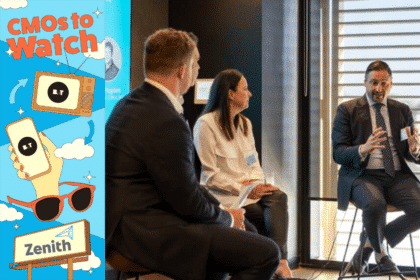Few know the mechanics of digital publishing better than Pippa Leary, who has led product at News Corp and is now responsible for its free news and publishing division. Leary wants to change how publishers measure success, moving away from ‘reach’ and focusing more on ‘engaged reach’. She reckons the stakes could not be higher.
There have been a few developments lately that pose an existential threat to the new publishing business.
Social media giant Meta, which owns Facebook and Instagram, has made it clear that news is not a priority and its algorithms are serving up less news content to its 2 billion daily active users. Meta has also decided it won’t fund journalism anymore through the Government’s News Bargaining Code, although Google remains on board, for now.
Google’s search is also becoming more challenging to find news. It has secured deals with the likes of Reddit and Quora to vacuum their data to feed its large language model machine, which has had an impact on many mastheads including B&T.
But perhaps the biggest threat to publishers on the horizon is how Gen AI is deployed in search and how it uses news media content to produce answers, while allowing users to easily bypass links to sources.
News Corp’s Pippa Leary, who has previously held senior digital publishing roles for the likes of Fairfax and Nine, believes this poses a huge challenge for publishers trying to draw audiences into their ecosystem.
“We’re all commercial publishers, and as we look down over the horizon and we see the possibility of zero search and zero social. We’re all going to have to change our business models, and we’re all going to have to start acting differently,” she told B&T.
“We’ve been so hooked on that (social media) drug for so long, we’ve diverted so many resources towards it. We need to stand on our own two feet again. We need to work out what’s our value proposition, what would encourage our users to come back directly to our sites.”
‘Engaged reach’ is the future
Leary proposes reframing how publishers are being marked. Instead of focusing on the size of the audience (reach) she wants to lead a push towards engagement.
That might sound convenient for an industry sector that has seen its audiences in structural decline for years – and Leary accepts that News Corp is not innocent when it comes to the ‘reach game’ – but this awakening is backed up by research.
When Leary’s role shifted from client product lead to overseeing News Corp’s free news and lifestyle division, she wanted to better understand the audiences that arrived to News Corp news sites from different distribution pipes, such as search, social media, newsletters and direct.
“What we found out was that the social arrivals prefer quite different content than the hyper engaged, and that by chasing this social, casual audience, and building content for them, we’re alienating our hyper engaged people,” she said.
“We’ve got to change the way we’re writing headlines. We’ve got to write deeper, more engaging articles to cater to what the audiences really want, instead of just spending time writing click bait.
“We’ve got to start acting like the platforms, walling everyone in and keeping everyone in our ecosystem – we need to get more serious about how we engage.”
Nine’s chief digital officer Alex Parsons told B&T that its publishing business – which includes non-paywalled sites like nine.com.au – has been focussed on engagement for years. He believes that quality journalism and search will continue to remain important for news brands and also search engines.
“Google is the number search platform globally and makes a lot of money from people searching news,” he said.
“Broad reach is probably less important for subscription based publications that provide premium quality news people want to pay for. We’d rather have 5-6 million paying subscribers than 10 million who don’t, but for free websites, I think reach will still be really important.”
Read more: Publishers need to wean off the drug of social media and trade on engagement








